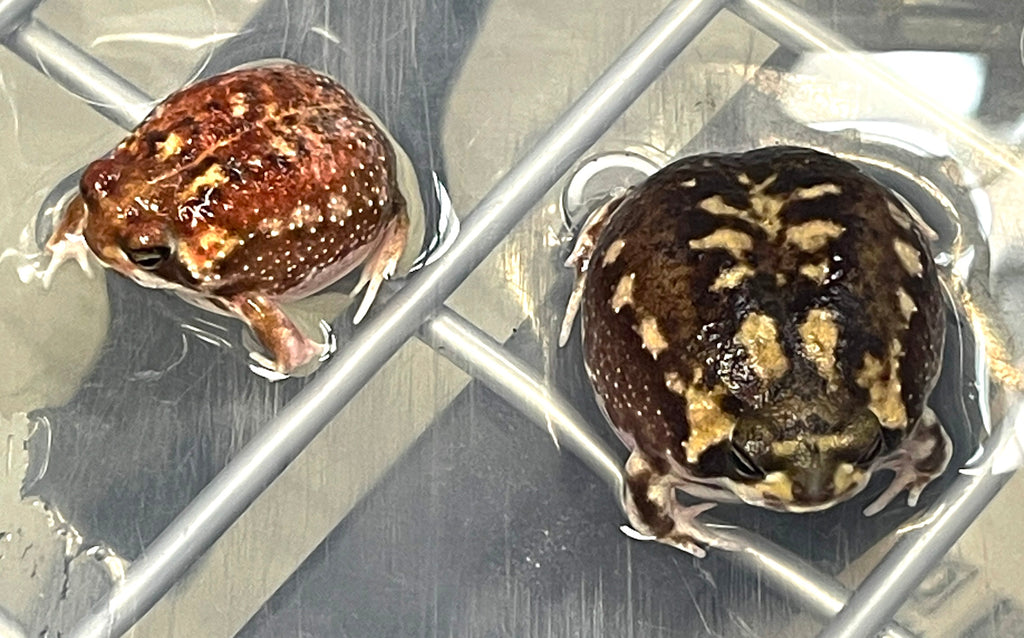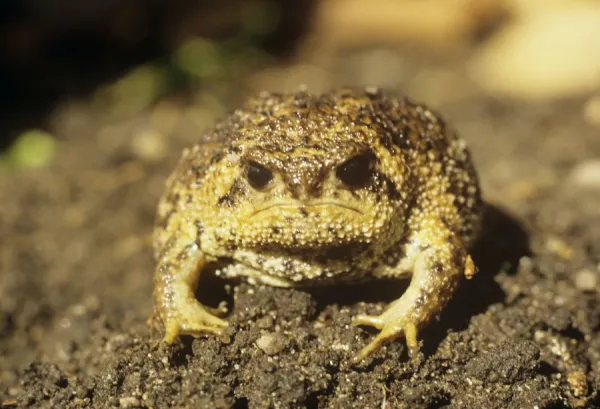Rain Frog for Sale: Boost Your Collection with Uncommon and Unique Amphibians!
Rain Frog for Sale: Boost Your Collection with Uncommon and Unique Amphibians!
Blog Article
Common Health Issues in Reptiles: Symptoms and Solutions
In the detailed globe of reptile treatment, understanding the typical wellness problems that might affect these distinct animals is extremely important in ensuring their well-being. From respiratory system infections that can quietly take hold to metabolic bone conditions that can incapacitate, reptiles are at risk to a series of ailments that need keen monitoring and timely treatment. Whether it's grappling with parasitic invasions, navigating dehydration issues, or attending to skin disorders that manifest in refined means, being in harmony with the symptoms and furnished with the knowledge of reliable services is vital for any reptile proprietor. By delving even more right into the subtleties of these health issues and discovering the functional remedies available, one can secure the health and vitality of these remarkable animals.
Respiratory Infections
Respiratory infections in reptiles can dramatically influence their total health and wellness and call for punctual attention from knowledgeable vets. These infections are commonly triggered by fungis, microorganisms, or infections and can manifest through symptoms such as wheezing, nasal discharge, open-mouth breathing, and lethargy. In reptiles, respiratory infections can be particularly challenging to diagnose and deal with as a result of their distinct composition and physiology. Veterinarians commonly rely upon a mix of physical examinations, diagnostic imaging, and research laboratory tests to accurately recognize the underlying cause of the infection.
Therapy for respiratory system infections in reptiles commonly entails a mix of supportive treatment, such as preserving proper humidity degrees and temperature gradients in the unit, along with targeted medication to attend to the specific virus accountable for the infection. It is important for reptile owners to monitor their pet dogs carefully for any type of indications of respiratory distress and look for veterinary care at the earliest indication of a problem. With timely intervention and appropriate therapy, numerous reptiles can recuperate completely from respiratory infections and return to normal activities.

Metabolic Bone Condition
What factors add to the advancement of Metabolic Bone Illness in reptiles?
Metabolic Bone Illness (MBD) in reptiles is mainly triggered by a lack of correct calcium, phosphorus, and vitamin D3 levels in their diet. When reptiles do not obtain adequate calcium, either with their food or appropriate UVB direct exposure for vitamin D3 synthesis, they go to a high danger of developing MBD. Reptiles with diet regimens reduced in calcium or unbalanced calcium to phosphorus proportions are specifically vulnerable. Furthermore, inadequate exposure to UVB light protects against reptiles from manufacturing vitamin D3, which is vital for calcium absorption and bone health.
Various other adding elements to MBD consist of improper temperature gradients within the reptile's habitat, causing reduced metabolism and impaired calcium absorption. Not enough humidity degrees can also affect a reptile's ability to metabolize calcium effectively. Additionally, particular reptile species have particular dietary demands that, if not satisfied, can increase the possibility of developing MBD. Regular vet exams, proper husbandry practices, and a balanced diet plan are necessary to avoid Metabolic Bone Condition in reptiles.
Parasitical Infestations
Parasitic invasions present a considerable wellness threat to reptiles, affecting their general wellness and requiring timely vet attention. Reptiles can be affected by different bloodsuckers, including mites, ticks, inner worms, and protozoa. These parasites can trigger a range of signs, such as weight-loss, lethargy, skin irritability, diarrhea, and even fatality if left neglected.
One typical bloodsucker found in reptiles is the mite, which can create skin anemia, anxiety, and inflammation. Ticks are an additional outside bloodsucker that can send conditions and cause discomfort go to website to the reptile. Interior bloodsuckers like worms and protozoa can lead to digestive issues, poor nutrition, and deteriorate the reptile's immune system.
To identify a parasitical invasion, a vet may do fecal tests, skin scrapings, or blood examinations. Treatment usually includes deworming drugs, antiparasitic bathrooms, or in serious instances, a hospital stay. Preventative steps such as regular veterinary examinations, proper hygiene, and quarantine treatments for new reptiles can assist reduce the threat of parasitic problems and make sure the health of reptile animals.
Dehydration and Hydration Issues
Dehydration in reptiles can significantly influence their health and wellness, requiring timely intervention and appropriate hydration monitoring. Reptiles are prone to dehydration because of numerous aspects such as insufficient water consumption, high environmental temperature levels, and particular health and wellness problems. Symptoms of dehydration in reptiles consist of sunken eyes, sleepiness, loss of skin flexibility, and lowered urination. If left untreated, dehydration can lead to severe wellness concerns and also be fatal to the reptile.
To stop dehydration, reptile owners must make sure that their pets have access to tidy water at all times. The water dish should be huge sufficient for the reptile to soak in if required, specifically for types that absorb water through their skin. In addition, preserving proper humidity levels in the reptile's unit and giving regular bathrooms can aid protect against dehydration.
In instances of dehydration, it is crucial to look for vet treatment without delay. A veterinarian might administer liquids either by mouth or via injections to rehydrate the reptile. It is vital to deal with the underlying reason for dehydration to stop recurrence and guarantee the reptile's general well-being.
Skin Conditions

Final Thought

Breathing infections in reptiles can considerably influence their general health and call for punctual focus from seasoned veterinarians (rain frog for sale). Preventative measures such as normal veterinary exams, proper health, and quarantine procedures for brand-new reptiles can assist reduce the threat of parasitic infestations and make certain the wellness of reptile pets
If left unattended, dehydration can lead to major wellness problems and even be deadly to the reptile.
Regularly checking your reptile for any modifications in skin look, color, or texture can help in early discovery and treatment of skin disorders, promoting the overall wellness and health of your flaky companion. - rain frog for sale
In verdict, reptiles are vulnerable to different health and wellness issues such as respiratory infections, metabolic bone illness, parasitical problems, dehydration, and skin conditions.
Report this page